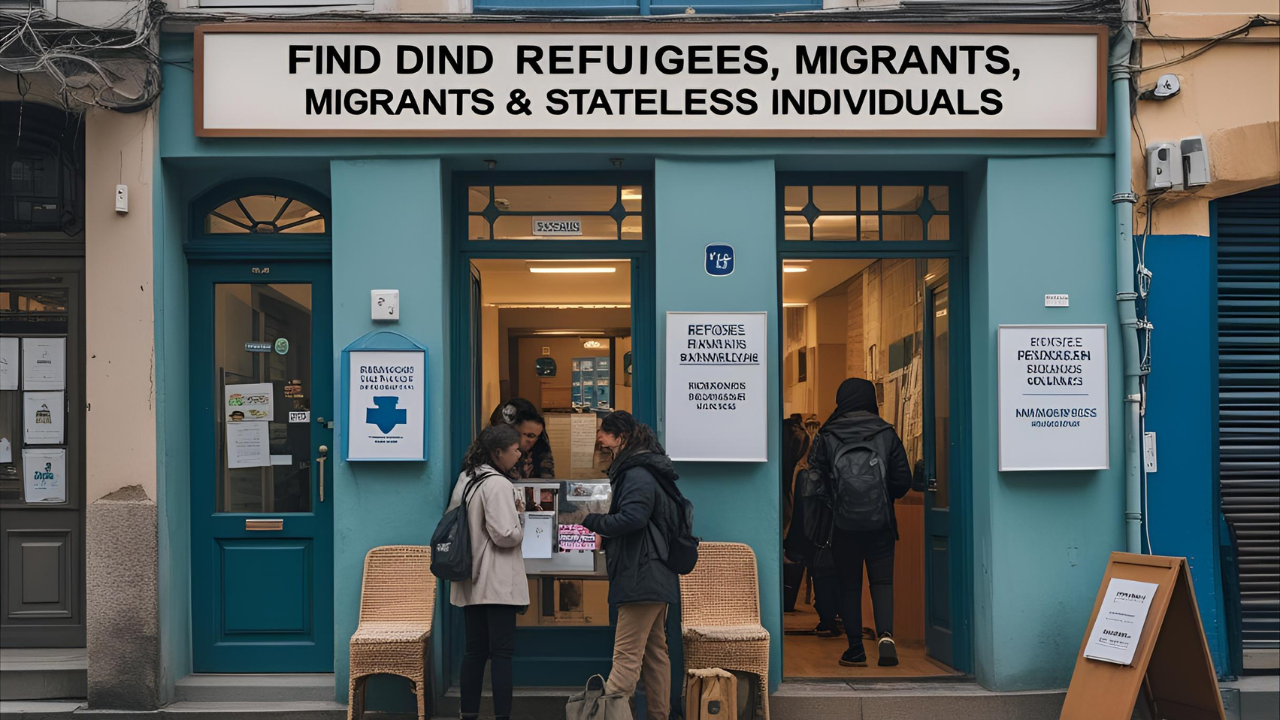In today’s world, displacement due to conflict, economic hardship, climate change, or persecution continues to affect millions globally. As a result, refugees, migrants, and stateless individuals often face major barriers when trying to access basic services, legal protection, and support systems.
To help bridge that gap, many governments, nonprofits, and international organizations have set up specialized help desks to assist these vulnerable populations. These service centers offer free information, emergency aid, legal guidance, and access to healthcare, housing, and documentation.
This article provides a comprehensive overview of where and how to access help desks for refugees, migrants, and stateless persons in 2025, including services offered and contact details.
Table of Contents
- Who Are Refugees, Migrants, and Stateless People?
- Why Help Desks Matter in 2025
- What Services Do These Help Desks Offer?
- Where to Find Help Desks (Global & Local Listings)
- How to Get Assistance or Book an Appointment
- Documents and Information You Might Need
- Final Words: You Are Not Alone
1. Who Are Refugees, Migrants, and Stateless People?
Before diving into resources, it’s important to understand these terms:
- Refugees are individuals forced to flee their home country due to war, violence, or persecution.
- Migrants move voluntarily or out of necessity to seek better economic, educational, or living conditions.
- Stateless individuals are people who are not legally recognized as citizens of any country, often due to gaps in nationality laws, discrimination, or displacement.
Each group may require different types of support but often face similar challenges—limited access to shelter, healthcare, legal rights, and work permits.
2. Why Help Desks Matter in 2025
In 2025, many displaced individuals still face:
- Uncertainty about legal status or asylum claims
- Lack of housing, food, or medical care
- Inability to access education or work legally
- Language barriers and cultural isolation
- Difficulty obtaining identity documents
Help desks are designed to be one-stop resource centers offering trustworthy, confidential, and immediate support to anyone navigating these difficulties.
3. What Services Do These Help Desks Offer?
Most help desks offer a wide range of services tailored to individual needs. These may include:
| Service | Description |
|---|---|
| Legal Aid & Asylum Guidance | Help with applying for asylum, visas, or residency |
| Housing & Shelter Referrals | Emergency and long-term housing options |
| Medical Assistance | Referrals to free clinics, vaccinations, mental health support |
| Food & Essentials Distribution | Access to meals, hygiene kits, clothes |
| Documentation Help | Help with IDs, passports, or refugee status papers |
| Language & Translation | Interpreter support and language classes |
| Employment Support | Job placement, resume help, vocational training |
| Education Access | School enrollment, scholarships, and learning centers |
These desks often collaborate with international bodies like UNHCR, IOM, Red Cross, and local NGOs.
4. Where to Find Help Desks (Global & Local Listings)
Here are some reliable sources where refugees, migrants, or stateless persons can find help desks in 2025:
🌍 Global Agencies and Platforms
| Organization | Website / Contact | Services |
|---|---|---|
| UNHCR – Refugee Agency | www.unhcr.org | Legal aid, resettlement, shelter referrals |
| IOM – International Organization for Migration | www.iom.int | Safe migration, ID support, integration help |
| Red Cross / Red Crescent | www.ifrc.org | Emergency aid, reunification, shelters |
| Refugee.Info | www.refugee.info | Country-specific info and helplines |
📍 Local Help Desks (By Region Example)
| Country / Region | Help Center / NGO | Contact |
|---|---|---|
| United States | IRC Resettlement Centers | www.rescue.org |
| United Kingdom | Refugee Council UK | www.refugeecouncil.org.uk |
| India | UNHCR India Help Desks | help.unhcr.org/india |
| Germany | Flüchtlingsrat (Refugee Council) | www.fluechtlingsrat.de |
| Kenya | Dadaab & Kakuma Refugee Camp Help Desks | In-person; coordinated via UNHCR Kenya |
| Greece | Refugee Support Aegean (RSA) | rsaegean.org |
Many refugee help centers operate mobile units and pop-up stations during crises.
5. How to Get Assistance or Book an Appointment
Here’s how to reach out for help:
- Visit the agency’s website and find the nearest help center or hotline.
- Call or text the emergency support line (available in multiple languages).
- Walk-in centers may be open for in-person visits—bring any available documentation.
- Ask for assistance from shelters, churches, mosques, or local nonprofits, who often work directly with aid agencies.
- Use apps like RefAid or Refugee.Info, which map local services in real time.
6. Documents and Information You Might Need
When visiting a help desk, bring (if available):
- Any form of ID or passport
- Asylum application receipt or case file
- Proof of current address or shelter stay
- Medical or vaccination records
- Birth certificate or marriage certificate (if applicable)
- Photos or documents supporting your claim (if seeking asylum)
Don’t worry if you lack documents—many help desks serve undocumented individuals and will guide you through alternative verification.
7. Final Words: You Are Not Alone
Being displaced or stateless can feel isolating—but you are not without support. In 2025, thousands of dedicated professionals and volunteers work every day to ensure that refugees, migrants, and stateless individuals are treated with dignity and compassion.
Help desks are more accessible than ever, providing the guidance you need to rebuild your life, access legal protection, and find a safe place to call home.
Reach out today. Help is here. Hope is real.

